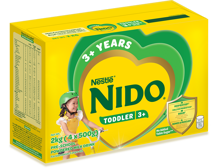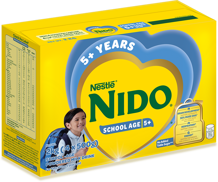
Protecting Toddlers to Learn and Explore
“Malikot & makulit” This is how parents usually describe toddlers and young children. Do we know why they are this way?
Toddlerhood is a time for thinking, talking, everyday skills, feelings and movement. Toddlers move around to explore their environment. It is through this curiosity and exploration that they find out how things work. They would like to try things on their own, seeking independence from parents like feeding or dressing themselves. Toddlers are also more communicative. It is also during this time that the “big feelings” occur: fear, and anger as examples. That is why tantrums are also very common during this period.
Let us look closely at how the brain develops at this time. It’s like building a house- everything is connected. What comes first becomes the foundation for what comes later. Hence the necessity of protecting the first 1000 days or the first 3 years of a child’s life is essential.
During this time of toddlerhood, defense organs: skin, lungs and gut also are still developing. We need to help a child build their immune system through providing them a healthy diet, allowing them to play and sleep well. With it, we allow them to reach their fullest potential to grow, develop and learn.
What are these nutrients necessary for brain development?
- DHA - is an omega-3 fatty acid, deposited in the brain during the third trimester of pregnancy up to toddler years. Studies shows kids with DHA supplementation had improved eye-hand coordination, enhanced problem-solving skills, sustained focus and attention, better processing information, and enhanced gross motor skills
- Zinc - necessary in connection between brain cells. A lack of zinc shows children with lowered learning ability, apathy, lethargy.
- Probiotics - these are supplements or food that contain live microorganisms or bacteria that we add to the population of the organisms that live in your intestines or gut. A child with a healthy gut has been said to have better brain connections which is needed for learning.
So aside from proper nutrition, how do we foster learning for toddlers?
Serve and Return
- Day to Day interactions shape the brain’s architecture.
- When your child approaches, names and objects, says “Look, Mom”, and an adult responds appropriately with eye contact, a word, or a hug, neural connections are being built and strengthened in a child’s brain.
- Since these responsive relationships are essential, their absence is a serious threat to a child’s development and well-being.
- Allow protected times- a specified period of the day to spend around 30 minutes a day per child to do a child-led activity.
Allow experimentation
- Toddlers learn through cause and effect, or what you call trial and error.
- For example, allowing your toddler drop objects in water to determine whether it will float or sink is allowing him or her to test a hypothesis.
Connect before you correct
- As our toddlers go through their big feelings, calmly approach your child, let the child know what that big feeling is called and help your child be able to handle that feeling.
Let us grow confident together in protecting our kids’ learning and development. Let us help our kids achieve total expert protection: a healthy defense system, a healthy brain and healthy growth and development.
About the Author:
Dr. Katrine Anne R. De Lara-Concepcion, MD
Fellowship in Developmental & Behavioral Pediatrics, UP-PGH
Diplomate, Philippine Pediatric Society (PPS)
Diplomate, Philippines Society for Developmental-Behavioral Pediatricians (PSDBBP)
Sources:
Raising Children.net.au
https://raisingchildren.net.au/toddlers/development/development-tracker-1-3-years/2-3-years
Harvard Center on the Developing Child
Experiences Build Brain Architecture: https://developingchild.harvard.edu/resources/experiences-build-brain-architecture/
Serve and Return
https://developingchild.harvard.edu/resources/5-steps-for-brain-building-serve-and-return/
Lauritzen et al. DHA effects on Brain Development and Function, Nutrients, 2016











